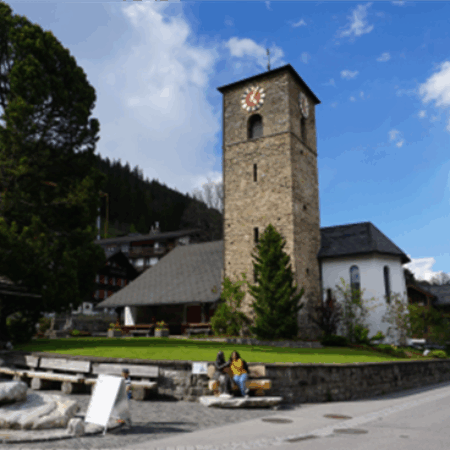In Switzerland I encountered a few interesting church practices, which I thought I’d share. That doesn’t mean that I’ll advocate for those to happen at St Paul’s or in Christchurch. But it’s always good to see what others are doing.
One of the annual church events in Switzerland is the “Long night of the churches”. This idea developed from the initiative “Long night of the museums”, during which museums are open late into the night, have special exhibits and entrance fees are discounted. The museums advertise the events together and encourage going from museum to museum that night. Another similar initiative is the “Long night of investigation” by universities, at which lecturers and students present interesting aspects of their work. I remember my Greek lecturer, for example, talking about how a knowledge of Greek may change our perspective on some New Testament passages and some common words we use.
The “Long night of the Churches” is advertised on public transport, the radio and online with one central website. Reformed, Roman Catholic, Old Catholic, Methodist and non-denominational churches take part. Churches offer church tours, concerts, sing-a-longs, art installations, activities for children, meals, talks, and reflective services to the public. Quite a few churches also have their annual festival that afternoon and evening. People are encouraged to check out a few different churches. Because we had other things on that day, I only ended up going to a concert with alphorn and organ, concluding in a sing-a-long of some favourite evening hymns. This was in a more rural church, which seem to be stronger in Switzerland than the urban churches. It clearly was a well-visited event with much of the community involved.
Another intriguing church practice was the communal meal at Pentecost in church. Long tables with chairs were set up in church. On the tables were baskets with large brioche buns in the shape of doves and jugs of juice. During the service we served each other and ate together. It was made clear that this was not formal communion, but a meal together as the church had celebrated meals through the centuries. In the Anglican tradition we do have something similar: the agape meals. The Anglican bishops suggested that this might be more appropriate on Maundy Thursday than a seder meal.
I was also surprised at the relative ease with which Catholics and Reformed Christians celebrated Communion together. In most countries the Roman Catholic church does not give communion to non-Catholics. That’s generally also the case in New Zealand. In Switzerland we were at a combined service in the Roman Catholic Church at which reserved Communion was given to all.
Lastly, I should mention that it’s not uncommon in Switzerland to see charcuterie platters served with wine for morning tea after church. But best we don’t go there…

